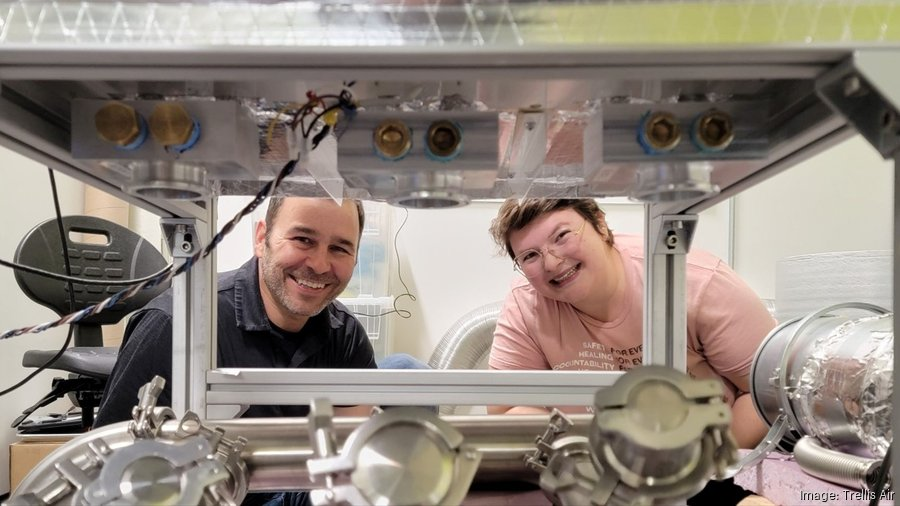Brain-computer interfaces (BCIs) represent a groundbreaking frontier in neurotechnology, unlocking the potential for direct communication between the human brain and external devices. With companies like Neuralink leading the charge, innovations such as brain chip implants are revolutionizing how individuals with disabilities interact with the world, providing them with tools to control prosthetic limbs and even computers through thought alone. The benefits of BCIs could significantly enhance the quality of life for millions suffering from conditions like paralysis or stroke, opening doors to unprecedented independence and interaction. However, alongside these advancements come critical ethical concerns of BCIs, harkening back to historical instances of mind control technology that raise alarms about consent and mental privacy. As we stand on the brink of this technological evolution, exploring its promise and peril is more crucial than ever.
The realm of neurotechnological advances, specifically through devices that facilitate brain-device communication, is transforming the way we think about human potential and autonomy. Often labeled as mind control technology, these innovative systems allow users to manipulate computers and other technology through neural signals, redefining accessibility for people with severe disabilities. While brain chip implants may offer substantial health benefits and enhance daily life experiences, they also invite deep ethical questions regarding privacy and the possibility of manipulation. As we delve into the implications of this technology, it’s essential to consider not just the practical applications but the moral landscape that surrounds such developments. Navigating this intricate balance will be vital as we embrace the future of brain-computer interfaces.
The Promise of Brain-Computer Interfaces in Healthcare
Brain-computer interfaces (BCIs) have the potential to revolutionize healthcare, especially for individuals with mobility impairments. Companies like Neuralink are pioneering the development of brain chip implants that enable users to execute complex tasks simply by thinking. This could be life-changing for paralyzed individuals who may use BCIs to control prosthetic limbs or communicate more effectively using speech-generating devices. The market for BCIs is projected to grow significantly as more therapeutic applications are discovered, illustrating a shift towards technology that can enhance the quality of life for those with disabilities.
The benefits of BCIs extend beyond mere accessibility; they also offer the promise of restoring a level of independence that many individuals desire. By directly linking neural inputs to digital outputs, BCIs can help patients regain control over their physical environment. The ability to interact with a computer through thought alone opens up vast opportunities, from enabling participation in social activities to enhancing professional engagements. As technology advances, the landscape of healthcare could shift dramatically, creating new avenues for therapy and rehabilitation.
Ethical Concerns Surrounding BCI Development
Despite their potential, brain-computer interfaces raise significant ethical concerns that need to be addressed as this technology evolves. The possibility of misuse looms large, echoing dark periods in history such as the CIA’s MKUltra experiments where the boundaries of ethics were blurred. Today, as BCIs become more capable of interpreting and even influencing thoughts, it becomes imperative to establish ethical frameworks that prevent exploitation. Advocates argue that consent and mental privacy must be prioritized to safeguard individual rights against potential abuses by both state and private actors.
Furthermore, the implications of BCIs on mental health and autonomy cannot be overlooked. As seen in research where deep brain stimulation has led to unexpected changes in behavior, the capability to alter cognitive functions introduces risks that could affect personal freedom. Would the deployment of such technologies lead to scenarios where individuals are manipulated without their consent? This concern necessitates rigorous regulatory oversight to ensure that brain-computer interface technologies are developed responsibly, balancing innovation with moral responsibility.
Neuralink: Leading the Charge in BCI Research
Neuralink has emerged as a front-runner in the exploration and implementation of brain-computer interface technology. Founded by Elon Musk, the company is at the forefront of creating devices that implant directly into the brain, paving the way for groundbreaking advances in neurotechnology. The successful demonstration of controlling devices using thoughts marks a significant milestone in BCI development. Neuralink’s work showcases not only technological innovation but also sets a precedent for future research and the expanding field of mind control technology.
As Neuralink pushes the boundaries of what’s possible, it also invites scrutiny of its methodologies and intentions. Concerns about the motivations behind their research surface, ranging from profit motives to potential societal impacts. With the emergence of mind control technology, the ethical ramifications must be critically examined. The actions of Neuralink today could lay the groundwork for societal acceptance or rejection of such technologies tomorrow.
Market Potential and Economic Impact of BCIs
The potential for brain-computer interfaces in the market is staggering, with early estimates suggesting a valuation of approximately $400 billion in the United States alone. As the demand for innovative healthcare solutions grows, especially for conditions such as paralysis and neurological disorders, BCI technologies can fulfill an essential need. The economic impact, therefore, is twofold: not only does it promise significant financial returns for tech companies, but it also indicates broader access to life-changing medical treatments for patients.
In addition to direct medical applications, the BCI market could stimulate various other industries, such as rehabilitation services, gaming, and mental wellness. As companies invest in research and development, new commercial opportunities will likely arise, expanding the economic landscape surrounding brain-computer interfaces. The emergence of BCIs signifies a shift toward a health-focused technology economy, driving innovations that prioritize human enhancement and well-being.
Future Directions in BCI Research and Development
As the field of brain-computer interfaces progresses, research will need to broaden its focus from technical advancement to comprehensive user experience. Future developments ought to incorporate not just the functional aspects of BCIs but also the psychological and emotional implications of using such technology. Research into user interfaces that accommodate diverse neurological profiles, especially in individuals with disabilities, should take precedence to ensure inclusivity in development.
Moreover, interdisciplinary collaboration among neuroscientists, ethicists, and technologists will help establish paradigms that mitigate risks while maximizing benefits. By integrating ethical considerations into the research and design process, developers can create more robust BCIs that prioritize user autonomy and mental integrity. The future of BCIs lies not just in what they can do, but in how they respect and enhance the human experience.
Historical Context of Mind Control Technology
The history of mind control technology, especially in relation to brain-computer interfaces, serves as a potent reminder of the ethical implications involved. Looking back at events such as the CIA’s MKUltra project illuminates the extremes to which technologists may go under the guise of research. This historical perspective raises a red flag for modern advancements in neurotechnology, urging contemporary stakeholders to approach BCI development with caution and foresight.
Understanding the past can guide the present by highlighting the importance of ethical governance in emerging technologies. As we witness the development of sophisticated BCIs that can influence thought and behavior, it is crucial to remain vigilant against the potential for misuse. By learning from historical missteps, society can better prepare for the challenges posed by the evolution of brain-computer interface technologies.
The Intersection of Technology and Ethics in BCIs
The intersection of technology and ethics in the realm of brain-computer interfaces presents a complex landscape fraught with both promise and peril. As BCIs become more prevalent, understanding the ethical obligations tied to their development and implementation becomes crucial. Technologies capable of decoding and potentially modifying human thought challenge our existing ethical frameworks and force society to redefine concepts of personal autonomy and privacy.
Discussions around the ethical implications of BCIs can lead to policy developments that safeguard human rights while fostering innovation. Establishing comprehensive guidelines that govern the use of brain-computer interfaces is essential in addressing concerns around consent, data security, and potential manipulation. It is essential to promote transparent practices within the industry to ensure that the advancements in this field serve humanity positively and ethically.
Global Perspective on BCI Adoption and Usage
Examining the global perspective on brain-computer interfaces reveals diverse attitudes toward the technology’s adoption and usage. In various regions, particularly in developing countries, there may be skepticism or caution regarding the implications of BCIs, driven by ethical concerns and fears of misuse. Conversely, countries heavily invested in technology, like the United States and China, may embrace the advancements with more enthusiasm, driven by the potential health benefits and economic impact.
Cultural attitudes towards technology and health will significantly influence BCI acceptance worldwide. Policymakers must consider these varying perspectives when approaching regulation and support for BCI research. Engaging in international dialogue about the ethical and practical implications of brain-computer interfaces can pave the way for broader understanding and shared standards that govern the responsible use of this transformative technology.
Enhancing Communication through Brain-Computer Interfaces
One of the most compelling applications of brain-computer interfaces is their potential to enhance communication, particularly for individuals with speech impairments. By translating neural activity into speech or text, BCIs can create new pathways for communication, enabling users to express their thoughts and feelings with greater ease. This technological advancement represents not just a personal victory for the user but also a societal benefit, fostering greater inclusion and understanding.
The ability of BCIs to facilitate communication is especially important in therapeutic settings where traditional methods may fall short. For individuals recovering from strokes or other neurological conditions, BCIs could provide tools to relearn communication skills and bridge gaps caused by injury. This transformative capability not only has implications for patient recovery but could also lead to new intervention strategies in speech therapy and rehabilitation.
Frequently Asked Questions
What is a brain-computer interface (BCI) and how does it work?
A brain-computer interface (BCI) is a technology that enables direct communication between the brain and an external device, such as a computer. It works by detecting and translating brain signals into commands that can control devices, allowing individuals to interact with technology using their thoughts. This technology has significant potential for helping people with disabilities restore mobility and independence.
What are the benefits of BCIs like those developed by Neuralink?
The benefits of brain-computer interfaces (BCIs), particularly those developed by companies like Neuralink, include improved mobility for people with paralysis, enhanced communication for individuals with speech impairments, and the ability to control devices through thought alone. BCIs hold promise for revolutionizing the treatment of neurological conditions and enhancing human capabilities.
What ethical concerns surround the use of brain-computer interfaces?
The ethical concerns surrounding brain-computer interfaces (BCIs) include issues of consent, mental privacy, and the potential for misuse, such as psychological manipulation or mind control. As BCIs become more advanced, there are fears that technology could be used to influence thoughts and behaviors without individuals’ consent, leading to serious implications for personal autonomy.
How is Neuralink advancing mind control technology with brain chip implants?
Neuralink is advancing mind control technology by developing brain chip implants that allow users to control devices through their thoughts. These implants translate neural activity into digital signals, enabling users to perform tasks like moving a computer cursor or playing games. While this technology shows great promise, it raises important questions about ethical use and potential implications for free will and mental privacy.
Can brain-computer interfaces help restore lost functions in injured patients?
Yes, brain-computer interfaces (BCIs) have the potential to help restore lost functions in patients with injuries such as spinal cord damage or strokes. BCIs can enable these individuals to control prosthetic limbs, communicate through speech-generating devices, and regain some level of independence by translating their thoughts into actions.
What is the market potential for brain-computer interfaces in healthcare?
The market potential for brain-computer interfaces (BCIs) in healthcare is substantial, with estimates suggesting it could reach around $400 billion in the U.S. alone. This significant market growth is driven by the increasing demand for innovative therapies to assist individuals with disabilities and neurological conditions.
What lessons can be learned from historical mind control experiments related to BCIs?
Historical mind control experiments, such as those conducted during the Cold War, highlight the potential risks associated with brain-computer interfaces (BCIs). These past abuses emphasize the need for ethical guidelines and regulations to prevent misuse of BCI technology, ensuring that advancements do not compromise individual rights and freedoms.
How can BCIs be used for non-medical applications?
Brain-computer interfaces (BCIs) can also be applied in non-medical settings, such as gaming and virtual reality. By allowing users to control their experience with their thoughts, BCIs can enhance immersive entertainment and create new forms of interactive engagement, showcasing their versatility beyond medical applications.
| Key Point | Details |
|---|---|
| Brain-Computer Interfaces (BCIs) | BCIs allow people with disabilities to control devices, such as computers and prosthetics, through brain activity. |
| Market Potential | The BCI market is estimated to reach around $400 billion in the U.S. alone due to rising cases of disabilities. |
| Ethical Concerns | The potential misuse of BCIs raises ethical questions regarding mental privacy and consent. |
| Historical Parallels | Historical references to MKUltra highlight risks of mind control and psychological manipulation using advanced technology. |
| Future Implications | Potential for BCIs to influence behavior or alter thoughts poses significant ethical dilemmas. |
| Support for Development | Despite concerns, ongoing development of BCIs is encouraged to mitigate foreign advancements and possible threats. |
Summary
Brain-computer interfaces (BCIs) represent a transformative technology with the potential to revolutionize the way individuals with disabilities interact with the world. However, as the development of this promising technology progresses, it is crucial to remain vigilant about the ethical implications and potential risks involved. Past experiences, particularly historical instances of government experiments focused on mind control, serve as a stark reminder of the necessary caution that must accompany such advancements. Ensuring that BCIs are used responsibly and ethically will not only protect individuals’ rights but also foster public trust in these groundbreaking innovations.









